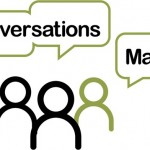
by cjxpadmin | Aug 27, 2012 | September 2012 Magazine, Uncategorized
From Ash to Ask
by Sharon Rector
Understanding How Language Can Affect Your Income
In the summer of 1971, I was afforded the opportunity to attend Baylor University’s Upward Bound Program as an incoming freshman. I had just graduated from high school with good grades and a great overall school record on my way to college and  eventually a good paying job. I never envisioned that I was about to learn a valuable and cautionary life lesson that has remained with me throughout my personal and professional life. By sharing my story, someone may reflect on how job opportunities can often hinge on their ability to speak and write effectively.
eventually a good paying job. I never envisioned that I was about to learn a valuable and cautionary life lesson that has remained with me throughout my personal and professional life. By sharing my story, someone may reflect on how job opportunities can often hinge on their ability to speak and write effectively.
That summer, the very first college course I enrolled in was a Language/Speech Class (not necessarily of a remedial nature) although economically, I was considered to be an underprivileged student, however, just a regular freshman speech class required of all incoming students. The underlying purpose of the course, in the mindset and the philosophy of the Upward Bound Program, was to give economically challenged students like me a “head start” on their pathway to a college degree and a bright financial future.
The course syllabus included students speaking in front of their peers on a variety of topics chosen by the professor. The professor’s goals were dual. First, he wanted to gauge our life experiences as well as listen to how we could openly express those experiences through speaking publicly. Simple. No problem. I knew how to speak in front of people. I had been doing that all my life!
While daydreaming in class, I inadvertently missed a couple of pertinent points in reference to the grading system of the course.  In order to stay abreast of what the professor explained to the class, I arrogantly raised my hand and bravely addressed the professor, “May I ash a question, please?” The professor who had gravitated from one side of the classroom back toward me looked stunned and gave me a stare that surely meant that I had just done something wrong. But what did I say?
In order to stay abreast of what the professor explained to the class, I arrogantly raised my hand and bravely addressed the professor, “May I ash a question, please?” The professor who had gravitated from one side of the classroom back toward me looked stunned and gave me a stare that surely meant that I had just done something wrong. But what did I say?
I was perplexed with no clue of what possibly could have caused such a reaction, but I was sure that I had done something that was not quite appropriate. He initially did not answer my question. However, immediately after class, he pulled me aside and requested that I repeat the question I had posed to him earlier. I could see that he was listening more intently, so I humbly muttered to him again, “I just wanted to ash you a question….” He stopped me immediately and thankfully, without embarrassing me any further, he calmly and compassionately explained to me that I had incorrectly pronounced the word “ask” and how it might be attributed to my cultural and social surroundings. To my astonishment, my speech professor insisted that I repeat the three-letter word every class period for weeks until I no longer mispronounced what I thought was such a simple and unassuming word.
The straightforward lesson in this story is that the manner in which we express ourselves, verbally and in writing, functions as a mirror into who we are as communicators and most importantly, who we could be as potential employees. Proper language is essential to effective communication. Without honing this skill, your message may be lost or you could be ignored entirely.
essential to effective communication. Without honing this skill, your message may be lost or you could be ignored entirely.
Most people are so familiar with their own language that there is little to no realization as to how it affects their daily lives. Language usage exemplifies how others may evaluate our belief system and values, and how well we can relay ideas, emotions, and yes, even logic. Among those evaluating you, could very well one day be a future employer who will determine your potentiality as a part of their company’s workforce and your monetary value.
In the website E-How, contributor Felicia Dyer’s “Language is the Tool,” she states that one must develop proper oral communication skills to adequately organize perceptions and develop higher order cognitive processes. She also surmises that poor language development, therefore, affects a person’s ability to be a problem-solver and to think independently.
Lera Boroditsky, author of “How Does Our Language Shape the Way We Think,” writes that the simple cognitive faculty of language could affect someone getting an education, meeting new friends, holding a job, or even starting a family.
 Recently, I took an impromptu test titled The Grammar Income Test. If you have come to this article, trying to find where you fall on the Salary Scale, I see you have also taken the test. I will get to that information shortly. This test, which is administered to college students through the University of Mottsburgh Occupational University Grammatical Knowledge, assesses and rates the correlation between grammar/language (inclusive of spelling, punctuation, capitalization, and usage skills) and a person’s potential income. According to the scale, I qualified for employment as an upper management individual. Ironically, when I retired in 2003, it was as an assistant principal of an elementary school with enrollment of approximately 1,300 students. Could this assessment be a valid indicator of how language affected my income potential? Quite possibly. Well, let’s take a look at the answers as well as the projected salary and occupational level of what you did.
Recently, I took an impromptu test titled The Grammar Income Test. If you have come to this article, trying to find where you fall on the Salary Scale, I see you have also taken the test. I will get to that information shortly. This test, which is administered to college students through the University of Mottsburgh Occupational University Grammatical Knowledge, assesses and rates the correlation between grammar/language (inclusive of spelling, punctuation, capitalization, and usage skills) and a person’s potential income. According to the scale, I qualified for employment as an upper management individual. Ironically, when I retired in 2003, it was as an assistant principal of an elementary school with enrollment of approximately 1,300 students. Could this assessment be a valid indicator of how language affected my income potential? Quite possibly. Well, let’s take a look at the answers as well as the projected salary and occupational level of what you did.
| Question |
Answer |
Correction |
| 1. Her choice will strongly effect the outcome. |
Incorrect |
Her choice will strongly affect the outcome. |
| 2. We have alot of work to do |
Incorrect |
We have a lot of work to do. |
| 3. Mottsburgh is a very busy industrial city, thousands of cars and trucks move through it every day. |
Incorrect |
Mottsburg is a very busy industrial city; thousands of cars and trucks move through it every day. |
| 4. “I suppose”, she remarked “that success comes only with time.” |
Incorrect |
“I suppose,” she remarked “that success comes only with time.” |
| 5. The company should receive the package tomorrow. |
Correct |
|
| 6. Its impressive to hear what she has done. |
Incorrect |
It’s impressive to hear what she has done. |
| 7. She was late, however, she did make the presentation. |
Incorrect |
She was late; however, she did make the presentation. |
| 8. Give the book to whom? |
Correct |
|
| 9. When the ship arrives we can begin the journey. |
Incorrect |
When the ship arrives, we can begin the journey. |
| 10. We rafted down the grand mountain river. |
Incorrect |
We rafted down the Grand Mountain River. |
| 11. The name of the book was “Outbreak.” |
Incorrect |
The name of the book was “Outbreak.” |
| 12. There were four in the group: Ann, Jim, Theo, and Amanda. |
Correct |
|
| 13. He sings good. |
Incorrect |
He sings well. |
| 14. You shouldn’t lie on the wet grass. |
Correct |
|
| 15. He paid all the interest on the principal. |
Correct |
|
| 16. I wish to go irregardless of his decision. |
Incorrect |
I wish to go, regardless of his decision. |
| 17. He doesn’t know history very well. As you can see from his answers in class. |
Incorrect |
He doesn’t know history very well, as you can see from his answers in class. |
| 18. He imagined that Hawking would have all the answers but he just posed more questions. |
Incorrect |
He imagined that Hawking would have all the answers, but he just posed more questions. |
| 19. Spiraling in the Andromeda Galaxy, Dr. Vilhelm insists that there is alien life on the Andromeda planet called Lanulos. |
Incorrect |
I really don’t know why this statement is incorrect, other than Lanulos is considered an imaginary planet. Can anyone help with this? |
| 20. We packed all of our luggage, then we were on our way to the airport. |
Incorrect |
We packed all of our luggage, then, we were on our way to the airport. |
Now for the salary part. This is where you discover that your answers can determine your salary capacity and occupational level. Take a look at this.
| # WRONG |
PROJECTED SALARY |
OCCUPATIONAL LEVEL |
| 0 to -4 |
$150,000 and above |
Top Executive |
| -5 to -6 |
$90,000 to $150,000 |
Upper Management |
| -7 to -8 |
$60,000 to $90,000 |
Key Personnel |
| -9 to -12 |
$25,000 to $60,000 |
Semi-Skilled |
| -13 to -18 |
$10,000 to $25,000 |
Unskilled |
| -20 or more |
$0 to $10,000 |
Unemployable |
As an assistant principal, I witnessed numerous interviews where potential employees used a colloquial such as “ain’t” or mispronounced the word “children” and replaced it with the word “chilren”, or incorrectly used punctuation or verb usage on their resumes. In the eyes of the school administration, these errors were unforgivable and no three-piece suit or well-manicured hairstyle could overcome the damage. Therefore, these applicants were almost always deemed not qualified, a bad hire, or potentially unemployable.
The thesis of the Grammar Income Test was a very simplistic one. Individuals who make such errors and mistakes in oral and written presentations are often viewed as not intelligent, or maybe incompetent, and usually such articulation errors are indicative of a lack of social and educational maturity. Such subtleties can result in prejudices against you and could keep you from getting the job and income you deserve.
The reality is that some people believe that they are just not adept at learning to speak correctly. Then there are some who do not realize their grammatical errors until it’s too late. Be very cognizant not to de-emphasize your communication skills by keeping the following points in mind.
- Never use colloquial language or slang. No matter how relaxed the atmosphere might be, you never know what subtleties a potential employer may be targeting.
- When preparing your resume always spell check, then edit, spell check, and edit again. People sometimes have the
 propensity to write in the same mode as they speak. Keep in mind that incorrect language is still incorrect language, whether it’s oral or written.
propensity to write in the same mode as they speak. Keep in mind that incorrect language is still incorrect language, whether it’s oral or written.
- Know the company to which you are applying. Know the company “buzz” words. Know how to pronounce those words and make sure you know what those words mean.
- Speak clearly and decisively. Don’t add words that you are unsure of and by all means, keep it simple and direct.
- Practice responses to possible questions. If you have researched the company and know the position you are applying for, you should have an idea of questions that could potentially be asked of you.
- Critique yourself. If it doesn’t sound correct to you, it won’t sound correct to your audience. Listen to yourself speak in front of a mirror. Sometimes, you can be your own best critic.
Much time has passed and it’s been quite a successful journey since the days of ash to ask. I stand in amazement on the impact of one moment in time and the empathy of a caring college professor who made me aware of how mispronouncing a simple three-letter word could have negatively changed my life. In retrospect, he unknowingly did me a favor that lasted a lifetime. I leave you with this story to ponder and a notable quote from English Philosopher Ludwig Wittgenstein (1889).
“The limits of my language mean the limits of my world.”
NOTE: Just a small note regarding the Grammar Income Test. This test was a bit fabricated. However, the concept of the test is very real.
Every day individuals who make grammatical errors are victims of a pervasive but seldom discussed prejudice. People assume that those who make frequent grammatical errors are unintelligent, not very knowledgeable, and incompetent. None of this may be true. Language habits are more indicative of social background than education and ability. However, any business executive will support the notion that grammatical skill directly affects promotion. So, the idea behind the Grammar Income Test is valid, although the scored income level may not be. △

by cjxpadmin | Aug 27, 2012 | September 2012 Magazine
By Sheena Williams
Facebook, LinkedIn, Twitter, bloggers are all social media sites. Let me reiterate, they are social media sites. If you break those three words down, it means a site that uses media for you to be social. You can share  pictures, thoughts, songs, and videos to let others know what you’re doing with and in your life. It can let you keep up with literally hundreds of people with a click of a button. If you have family in Aruba, you just have to log on to see if that hurricane missed them. Have a daughter in the army? Well, your Facebook can bring you that much closer to seeing her.
pictures, thoughts, songs, and videos to let others know what you’re doing with and in your life. It can let you keep up with literally hundreds of people with a click of a button. If you have family in Aruba, you just have to log on to see if that hurricane missed them. Have a daughter in the army? Well, your Facebook can bring you that much closer to seeing her.
With all of the convenience of social media, it isn’t any wonder that many companies have now jumped on the bandwagon! Not only do they do this to advertise their product or service, but to conduct hiring practices. Think about all of the information that is on your resume can now be on LinkedIn. Employers can screen you, get your email address or telephone number, and hire you within a matter of minutes!
Unfortunately, however, with the good, comes the bad. You’re a conservative? Guess what? Your future boss  may be a liberal. Don’t like chicken soup? Well, the office administrator in charge of hiring may love it and thinks that anyone who doesn’t like it is un-American! With these kinds of pitfalls, someone could easily fall through, so, it’s easy to just say “Forget social media altogether.” However, more and more jobs are requiring a Facebook account or some such application. People are losing out on jobs because the employers cannot connect with them. You didn’t hear about that job on 4th Street? That’s because the company released the information on Twitter instead of spending the money for that pricey ad in the newspaper. In an effort to keep you from ignoring the job networking power house that is Social Media, we are going to give you some rules of thumb to follow when working with and posting on the World Wide Web!
may be a liberal. Don’t like chicken soup? Well, the office administrator in charge of hiring may love it and thinks that anyone who doesn’t like it is un-American! With these kinds of pitfalls, someone could easily fall through, so, it’s easy to just say “Forget social media altogether.” However, more and more jobs are requiring a Facebook account or some such application. People are losing out on jobs because the employers cannot connect with them. You didn’t hear about that job on 4th Street? That’s because the company released the information on Twitter instead of spending the money for that pricey ad in the newspaper. In an effort to keep you from ignoring the job networking power house that is Social Media, we are going to give you some rules of thumb to follow when working with and posting on the World Wide Web!
Are you ready?
Create yourself a separate account or page for work purposes. Yes, I know, you already have a  Facebook/LinkedIn/Twitter page. But do yourself a very large favor and create another one with your work e-mail address that you can keep completely separate from your personal social media page. This not only allows you to get your face and resume out there, but it also allows you to post freely on your personal page without having your boss seeing you do the Captain Morgan pose in front of their building. As funny as it may be, the picture has a time stamp on it and now you and your boss know that your picture was not taken during your lunch break.
Facebook/LinkedIn/Twitter page. But do yourself a very large favor and create another one with your work e-mail address that you can keep completely separate from your personal social media page. This not only allows you to get your face and resume out there, but it also allows you to post freely on your personal page without having your boss seeing you do the Captain Morgan pose in front of their building. As funny as it may be, the picture has a time stamp on it and now you and your boss know that your picture was not taken during your lunch break.
Learn the Terminology
Your boss asks why you don’t post anything on your Twitter. What? You have a Twitter and you were supposed to post? What is a post? Okay, so you’re creating the requested post. It tells you that you put in too  many characters. What are characters? It’s little things like these that you will need to look into that will make your time on any social media site easier before you even log on. A little research will let you know that a post is the content that you put on your social media page. You’ll find out that characters are the words, letters, numbers, and spaces that fill up a post. Being savvy about the things that you are about to undertake before you get on with it, will make your day a lot easier.
many characters. What are characters? It’s little things like these that you will need to look into that will make your time on any social media site easier before you even log on. A little research will let you know that a post is the content that you put on your social media page. You’ll find out that characters are the words, letters, numbers, and spaces that fill up a post. Being savvy about the things that you are about to undertake before you get on with it, will make your day a lot easier.
Securities Securities are what you allow others to see when they come to your page. You don’t mind letting John Doe check out your daily posts, but Jane Smith seems a bit suspicious. With many social media sites, you have the power to block, hide, allow, un allow, and show only who or what you wish to share. Maybe you took some before and after pictures of your weight loss journey, but you don’t want others to see your progress before your high school reunion. Set the picture folder to private and only your friends and family can see it. Going to the hospital to have a very personal surgery? Make sure that your securities reflect those who you want to see it. We always recommend that if it is something private like the previous example that you don’t put it up on your media site. Call those you need to know that information so that it will stay private.
Know What To Post
In life, you will find that not everyone will agree. In fact, in much of life, you will find that not everyone will agree. You have every right to post your opinion on any given topic that you see fit. However, by putting it on a social media site, you are giving everyone you have allowed access to your page to view and talk about it and come back with a rebuttal. If you are hoping to have a future employer hire you based on your information, then, you will have to keep the information you post to a minimum. Nothing negative, political, religious, racist or generally too opinionated should go onto your page. You want employers to base their decision to hire you based on your work, not how you feel about the Red Sox losing that big game.
come back with a rebuttal. If you are hoping to have a future employer hire you based on your information, then, you will have to keep the information you post to a minimum. Nothing negative, political, religious, racist or generally too opinionated should go onto your page. You want employers to base their decision to hire you based on your work, not how you feel about the Red Sox losing that big game.
Be Choosy About Who You Allow On Your Page
You love your Aunt Gertrude. You want nothing but good things and happy days for your Aunt Gertrude.  However, Auntie G has a bad habit of telling really embarrassing baby stories about you on your page. Your best friend, Buddy, has a nasty habit of criticizing you on your page. Your social media page is not the place for him or Aunt G to be doing any of that. Maybe it’s not even a case of you doing anything. Maybe Jessica likes to take provocative pictures of herself next to a car. It may be innocent, but if she tags you on the pictures, they will show up on your page, and it’s not something your employer needs to see. Don’t ignore any of these people, by any means. If you followed the above directions and have two separate pages, then, put them on the personal page and move on… except for that friend who criticizes you, having toxic people in your life isn’t good, no matter how funny he is, posting those pictures of those crazy kittens.
However, Auntie G has a bad habit of telling really embarrassing baby stories about you on your page. Your best friend, Buddy, has a nasty habit of criticizing you on your page. Your social media page is not the place for him or Aunt G to be doing any of that. Maybe it’s not even a case of you doing anything. Maybe Jessica likes to take provocative pictures of herself next to a car. It may be innocent, but if she tags you on the pictures, they will show up on your page, and it’s not something your employer needs to see. Don’t ignore any of these people, by any means. If you followed the above directions and have two separate pages, then, put them on the personal page and move on… except for that friend who criticizes you, having toxic people in your life isn’t good, no matter how funny he is, posting those pictures of those crazy kittens.
Do Not Post Your Personal Business
I cannot stress enough that it is potentially dangerous for you to put seriously personal things on your page. No one needs to know that your husband cheated on you. No one needs to know that you were chatting up some hottie on websites with questionable names. For the love of all that is heavenly, do not fight with your significant other on Facebook. As stated earlier, you are posting to a social media site. Yes, it is your business what you post there, but by posting it there, you open yourself up to criticism, complaints and judgment from all who can see your post, including your future boss. Your words can be used against you in a court of law, and there have been custody battles won on things posted on social media sites, don’t think I’m kidding. Think of social media as an interactive diary. You post your personal thoughts, but instead of the thoughts just being kept, the pages respond back to you.
what you post there, but by posting it there, you open yourself up to criticism, complaints and judgment from all who can see your post, including your future boss. Your words can be used against you in a court of law, and there have been custody battles won on things posted on social media sites, don’t think I’m kidding. Think of social media as an interactive diary. You post your personal thoughts, but instead of the thoughts just being kept, the pages respond back to you.
Don’t Be Afraid Of Social Media. It’s meant as entertainment and can be an excellent tool for finding work. It allows you to network and meet new people whom you wouldn’t have otherwise had the opportunity to meet. Just practice caution and some good common sense and you will be fine! △

by cjxpadmin | Aug 22, 2012 | Job Club Heart of Texas, Job Search
The Grammar Income Test
UNIVERSITY OF MOTTSBURGH OCCUPATIONAL INVENTORY OF GRAMMATICAL KNOWLEDGE
As demonstrated in the research of Dr. Edward McCormick, an individual’s habits of grammar correlate with her or his income. Test results indicate that one can predict with 80 percent accuracy the income of an individual based on his answers to the questions below. Use this quiz to see what income level your grammatical patterns place you.
Instructions: Mark each sentence as C if it is grammatically correct, I if it is incorrect, or ? if you are uncertain. Wrong answers count as a minus two. A question mark, indicating you are uncertain, only counts as a minus one. Keep in mind that errors may be of any variety: spelling, punctuation, capitalization, or usage.
- 1Her choice will strongly effect the outcome.
- We have alot of work to do.
- Mottsburgh is a busy industrial city, thousands of cars and trucks move through it every day.
- “I suppose”, she remarked “that success comes only with time.”
- The company should receive the package tomorrow.
- Its impressive to hear what she has done.
- She was late, however, she did make the presentation.
- Give the book to whom?
- When the ship arrives we can begin the journey.
- We rafted down the grand mountain river.
- The name of the book was “Outbreak.”
- There were four in the group: Ann, Jim, Theo, and Amanda.
- He sings good.
- You shouldn’t lie on the wet grass.
- He paid all the interest on the principal.
- I wish to go irregardless of his decision.
- He doesn’t know history very well. As you can see from his answers in class.
- He imagined that Hawking would have all the answers but he just posed more questions.
- Spiraling in the Andromeda Galaxy, Dr. Vilhelm insists that there is alien life on the Andromeda planet called Lanulos.
- We packed all of our luggage, then we were on our way to the airport.
For your scoring to this test, please check here tomorrow. For results showing the effect of your salary, refer to the article “Grammar Test” in the September Issue of CampusJobXpress.com.
- How well did you do?
- How well do you think you did?
- Do you feel you need assistance with your grammar?
- How important do you feel grammar is to your salary earning capacity?
*From Noden H. (1999). Image grammar: Using Grammatical structures to teach writing (pp. 195-196) Portsmouth, N.H: Heinemann.
Please DO NOT post your answers or corrections to these sentences.
SCORING Answer Key:
1. I 2. I, 3. I, 4. I, 5. C, 6. I, 7. I, 8. C, 9. I, 10. I, 11. I, 12. C, 13. I, 14. C, 15. C, 16. I, 17. I, 18. I, 19. I, 20. I.
For the projected salary that goes with your score, check out the article, Grammar Test, in the upcoming September issue of CampusJobXpress.com.
by cjxpadmin | Aug 15, 2012 | Job Club Heart of Texas, Job Search
What IS the big idea, we ask. So far Job Club has been a hit, but we want Opinions. What do you think would improve Job Club? What would you like to see added or talked about. Tell us Your Big Idea.
Just another serious reminder, many of you are not making at least one comment. This comment is critical as it documents you as participating in Job Club. You must say something in job club to be marked as present. Your participation in job club is one job search!
We welcome your comments.
Rachel Rudd Job Placement Specialist Campusjobxpress.com
by cjxpadmin | Aug 8, 2012 | Job Club Heart of Texas, Job Search
We have asked everyone to be ready to do a one minute presentation on the ultimate interview question: “Tell me about yourself”. Everyone assumed they were ready to do that, but after hearing some individuals this is not the case. All answers to every question should always be work related and kept positive. The below questions are major examples as to what employers normally ask during an interview. How would you answer some of these?
- Tell me about yourself.
- What is your greatest strength?
- Can you describe a situation in your past where you learned from a mistake?
- What is the most difficult situation you have ever faced?
- Is there anything you would like to improve about yourself?
- What is the most important thing you are looking for in a job?
- What are your career goals?
- What motivates you?
- Why would you like to work for us?
- Why should I hire you?

 eventually a good paying job. I never envisioned that I was about to learn a valuable and cautionary life lesson that has remained with me throughout my personal and professional life. By sharing my story, someone may reflect on how job opportunities can often hinge on their ability to speak and write effectively.
eventually a good paying job. I never envisioned that I was about to learn a valuable and cautionary life lesson that has remained with me throughout my personal and professional life. By sharing my story, someone may reflect on how job opportunities can often hinge on their ability to speak and write effectively. In order to stay abreast of what the professor explained to the class, I arrogantly raised my hand and bravely addressed the professor, “May I ash a question, please?” The professor who had gravitated from one side of the classroom back toward me looked stunned and gave me a stare that surely meant that I had just done something wrong. But what did I say?
In order to stay abreast of what the professor explained to the class, I arrogantly raised my hand and bravely addressed the professor, “May I ash a question, please?” The professor who had gravitated from one side of the classroom back toward me looked stunned and gave me a stare that surely meant that I had just done something wrong. But what did I say? essential to effective communication. Without honing this skill, your message may be lost or you could be ignored entirely.
essential to effective communication. Without honing this skill, your message may be lost or you could be ignored entirely. Recently, I took an impromptu test titled The Grammar Income Test. If you have come to this article, trying to find where you fall on the Salary Scale, I see you have also taken the test. I will get to that information shortly. This test, which is administered to college students through the University of Mottsburgh Occupational University Grammatical Knowledge, assesses and rates the correlation between grammar/language (inclusive of spelling, punctuation, capitalization, and usage skills) and a person’s potential income. According to the scale, I qualified for employment as an upper management individual. Ironically, when I retired in 2003, it was as an assistant principal of an elementary school with enrollment of approximately 1,300 students. Could this assessment be a valid indicator of how language affected my income potential? Quite possibly. Well, let’s take a look at the answers as well as the projected salary and occupational level of what you did.
Recently, I took an impromptu test titled The Grammar Income Test. If you have come to this article, trying to find where you fall on the Salary Scale, I see you have also taken the test. I will get to that information shortly. This test, which is administered to college students through the University of Mottsburgh Occupational University Grammatical Knowledge, assesses and rates the correlation between grammar/language (inclusive of spelling, punctuation, capitalization, and usage skills) and a person’s potential income. According to the scale, I qualified for employment as an upper management individual. Ironically, when I retired in 2003, it was as an assistant principal of an elementary school with enrollment of approximately 1,300 students. Could this assessment be a valid indicator of how language affected my income potential? Quite possibly. Well, let’s take a look at the answers as well as the projected salary and occupational level of what you did. propensity to write in the same mode as they speak. Keep in mind that incorrect language is still incorrect language, whether it’s oral or written.
propensity to write in the same mode as they speak. Keep in mind that incorrect language is still incorrect language, whether it’s oral or written.







